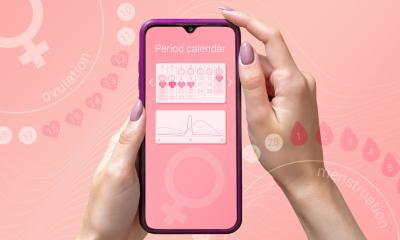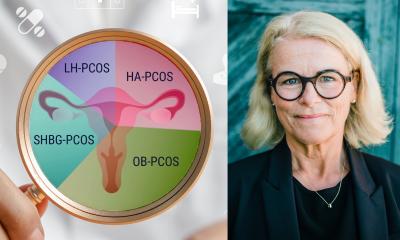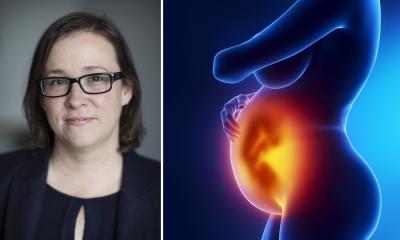
Image source: Adobe Stock/Prostock-studio
News • From conception to childbirth
Study shows what women want (in pregnancy health apps)
Digital health interventions, such as mobile applications, are increasingly being viewed as potential ways to encourage behavior change to improve health outcomes in areas including diet, exercise and sleep.
Among women in the pregnancy, pre-pregnancy, or post-pregnancy stages, healthy lifestyles and behaviors are of key importance to the mother and child.
Using digital health solutions however, also comes with challenges in achieving and maintaining long-term lifestyle changes, due to the difficulty in adhering to suggested procedures and user fatigue. It is critical, therefore, to involve users during the process of developing these solutions, in order to derive potentially longer-term impact and improve patient health.
Women who are trying to conceive, who are pregnant, or who have recently given birth have unique journeys and want digital health interventions tailored to their journey
Dr. V Vien Lee
A multi-disciplinary team comprising obstetricians, gynecologists, pediatricians, and biomedical engineers from National University of Singapore (NUS), Yong Loo Lin School of Medicine (NUS Medicine), National University Health System (NUHS) and National University Hospital (NUH), has found that the ability for personalization of user experience and localized content are key determinants for the effectiveness and sustainability of digital health solutions that support women from pre- to post-pregnancy.
These findings are published in npj Digital Medicine and include insights from interviews conducted with 44 women at different stages of the childbearing roadmap, including preconception, pregnancy, and post birth.
Dr. V Vien Lee, research fellow at the Institute for Digital Medicine (WisDM) at NUS Medicine, and first author of the study, said, "Women who are trying to conceive, who are pregnant, or who have recently given birth have unique journeys and want digital health interventions tailored to their journey. Part of tailoring the intervention includes providing health information at the right time and sharing anecdotes of women who have similar experiences."
The research team identified some examples that further elaborated on these two key determinants. The first—personalization—includes the following examples:
- data-driven personalized information given to women at the right time, as participants highlighted the need for adaptive feedback based on their input, to help them better understand and troubleshoot their journey from conception to post-birth, and provided at a relevant point in time; and
- ability to provide milestone indicators relevant to their current phase such as suitable timelines for fertility checks, further medical investigations and their babies' development.
For the other determinant of having localized content, examples include:
- access to local health care resources within their home region, including fertility testing, gynecologists, maternity ward options, pre- or post-natal physiotherapists, counselors, lactation consultants, post-natal massage therapists and pediatricians;
- localized guidance relating to lifestyle, specifically diet and alternative medicine options, which is not easily available online; and
- information and guidance on the local health care process, as participants expressed struggles in understanding next steps when navigating through their health care journey from preconception to post birth.
- Professor Dean Ho, Director of WisDM, who co-led the study, said, "The factors identified from our study provide a comprehensive view of the participants' priorities, which could serve as a powerful framework for effective solutions to be developed with the user in mind."
"Digital health solutions should be deeply contextualized to the needs of the users. Therefore, this study aimed to really understand what pregnant women in Singapore want and need in a digital solution," added Dr. Agata Blasiak, Research Assistant Professor at WisDM, and co-corresponding author of the study.
The team hopes that the study's results will inform key agents and parties within the digital health ecosystem on how to best develop user-centered solutions for women at varying stages of pregnancy, address specific concerns and provide actionable information at the right time.
Source: National University of Singapore
26.01.2024










